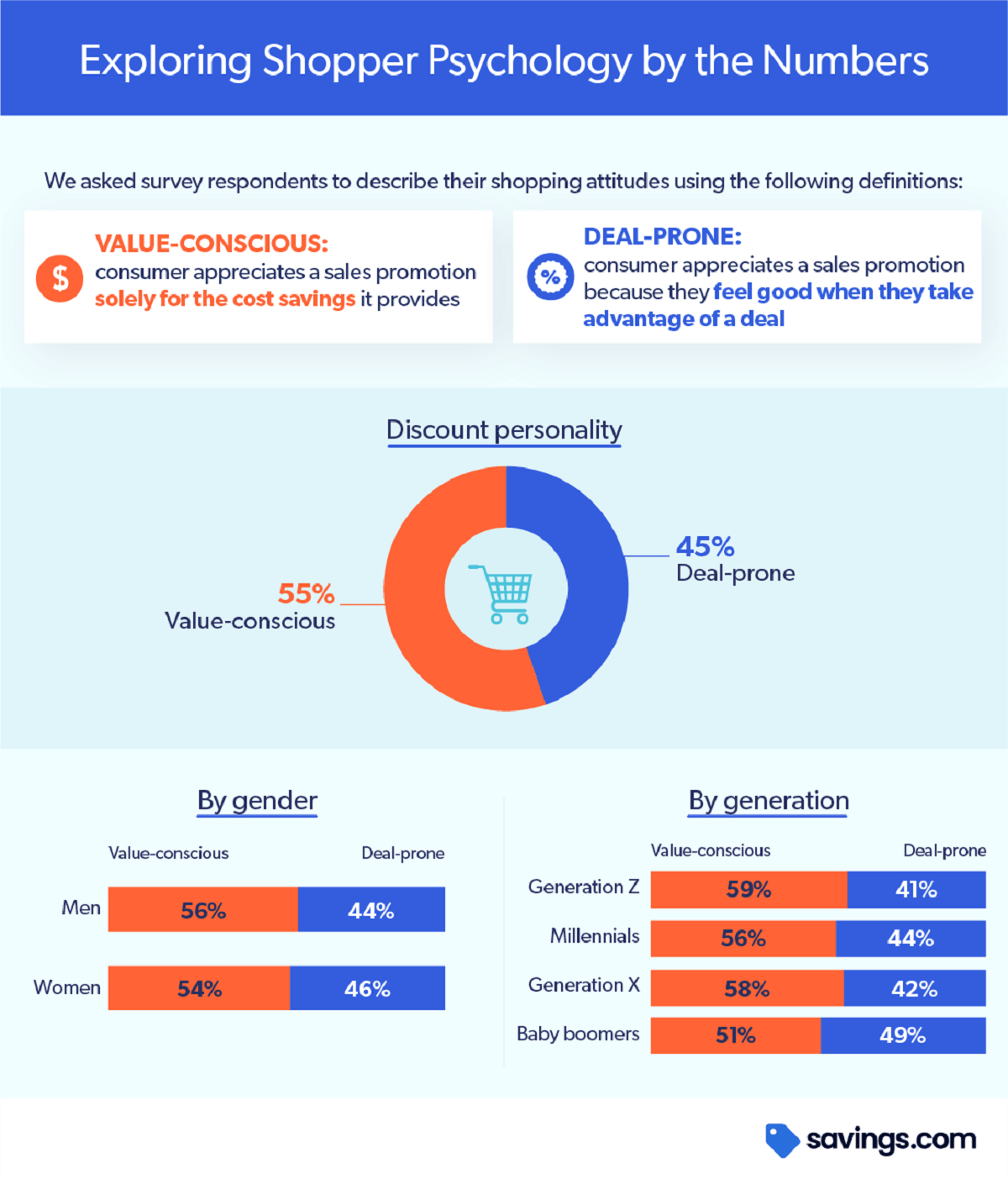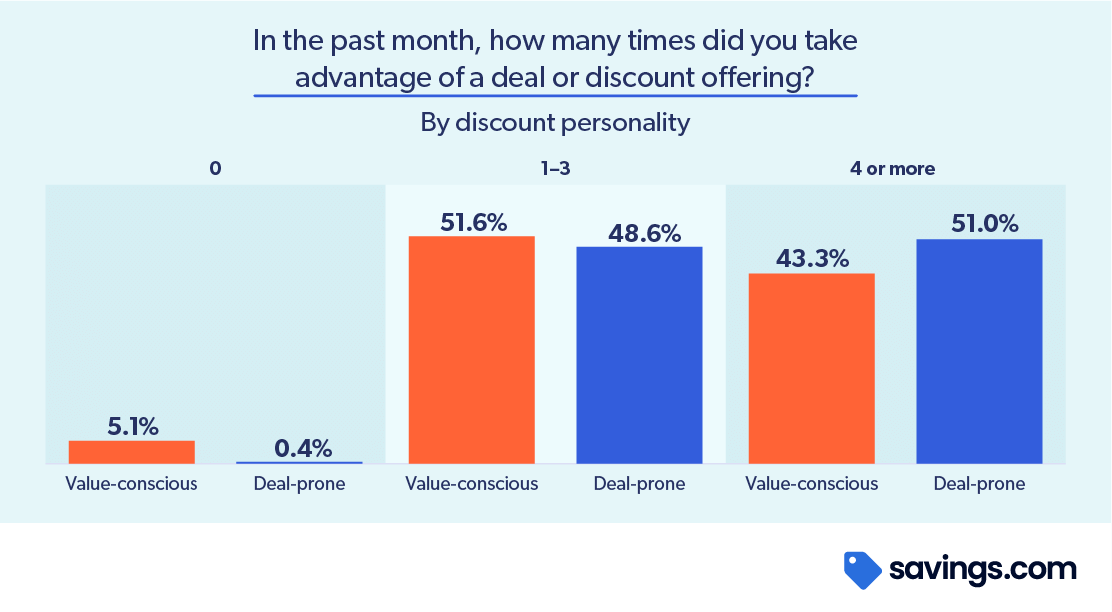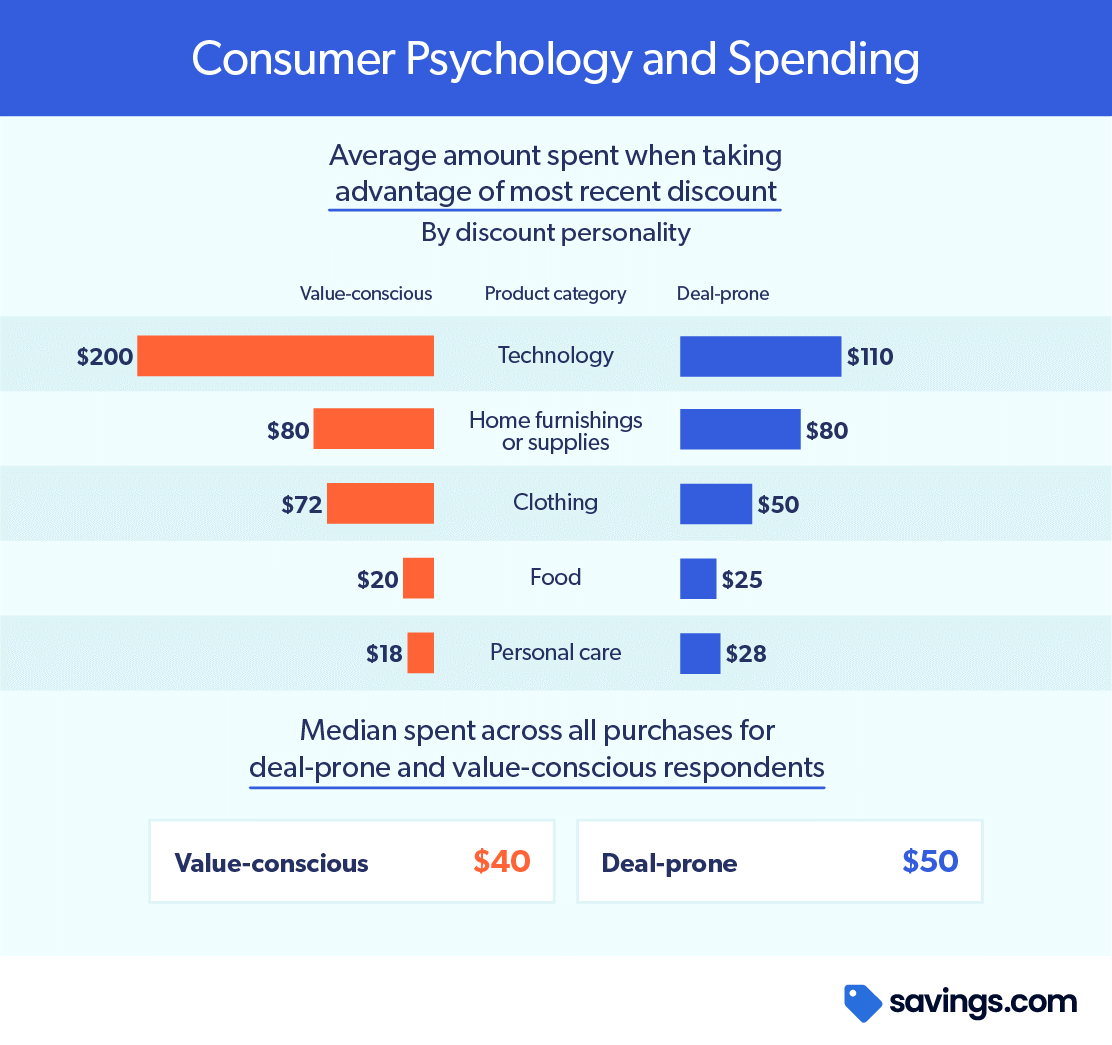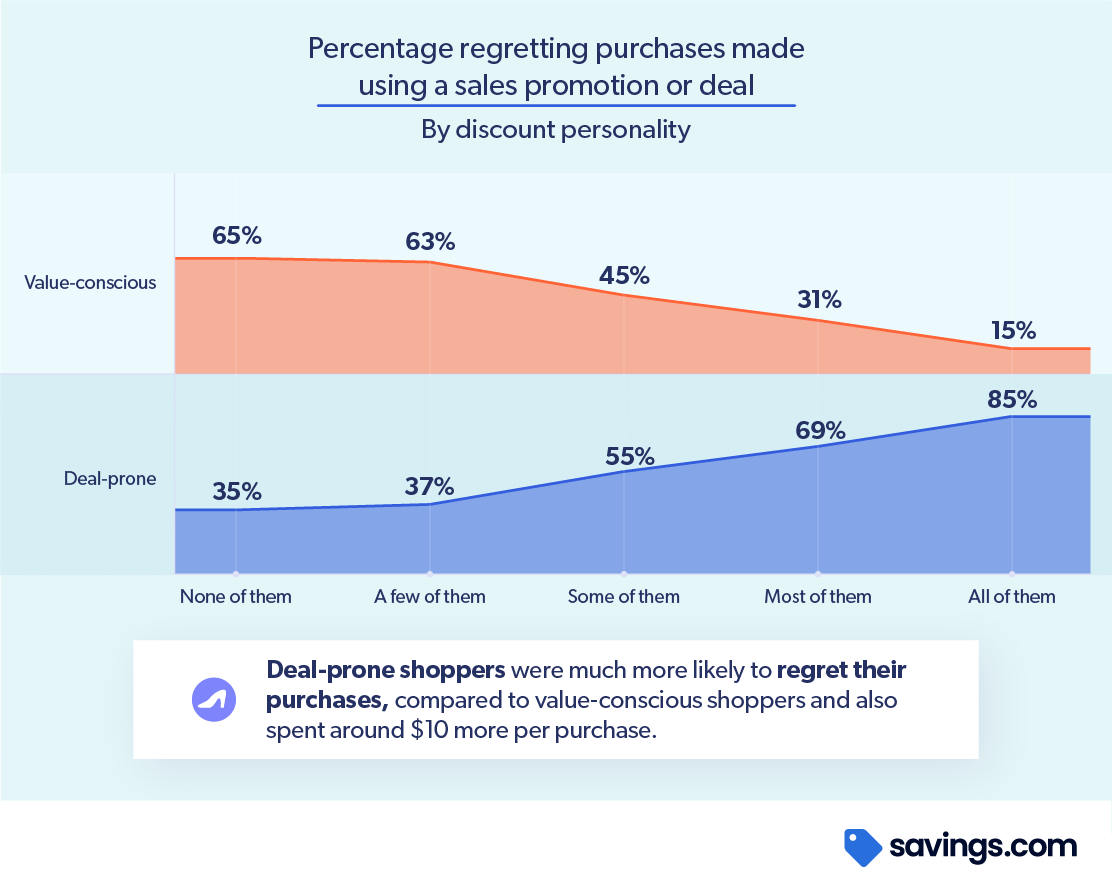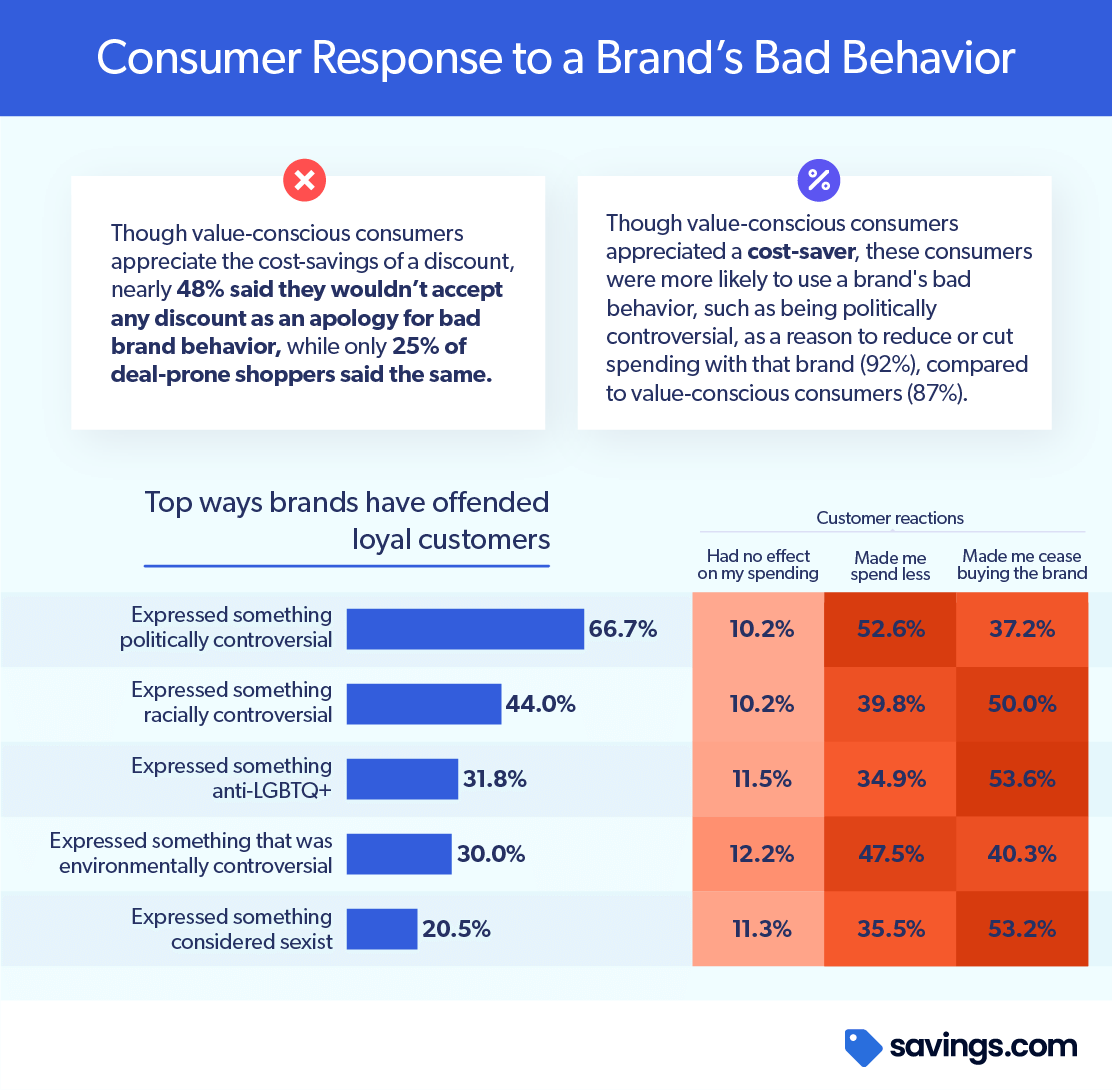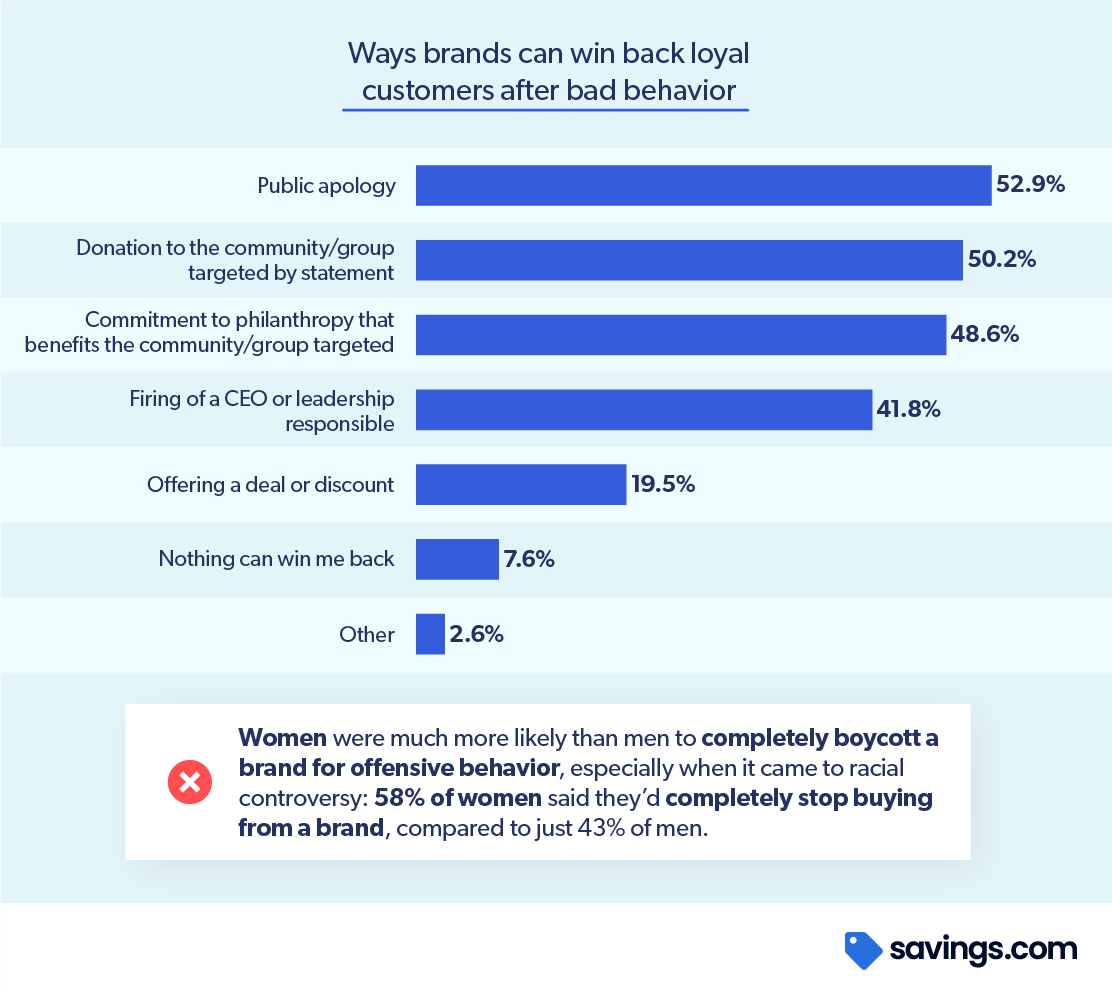It’s safe to say that even under normal circumstances everyone likes saving a few extra bucks here and there whether it be for an emergency fund, a shiny new purchase, or to hit a new investing milestone. This past year has taught us to ramp up that mentality through a whole lot of uncertainty and shifted priorities. On top of that, a lot of people have simply been bored and found themselves spending more, which warrants more deal-shopping.
Q1 2021 hedge fund letters, conferences and more
Because the end goals for our savings vary from person to person, the mentality behind seeking out those deals change accordingly. They take on a personality of their own, if you will. In fact, some people go out of their way to buy and then buy some more, just for the sake of catching a deal.
Enter the world of value-conscious versus deal-prone shoppers. In order to highlight the differences between the two and to see how the responses to controversial brand behaviors are affected by this, Savings.com surveyed over 1,000 U.S. shoppers about their buying habits and their perception of brand controversy. They found that the majority of people have goals beyond just finding good deals and that pure deal-seekers tend to regret their purchases more.
Value-Conscious Vs. Deal-Prone: Which Are You?
Before we look at the numbers, we need to make sure our definitions are straight. Value-conscious shoppers use sales promotions solely for the savings and probably have goals for that leftover cash. They aren’t purchasing things they don’t need. Deal-prone shoppers get a bit of a dopamine rush from the act of pursuing a discount and make up an alarming 45% of shoppers surveyed.
Not only does this lead to more purchases made by deal-prone shoppers - 51% made 4 or more over the course of a month - but it also leads to more money spent ($10 more on average), and more regret. Interestingly enough, the defining factor is how much the two spend on clothes and personal care items.
Is the extra spending worth it at least? Well… not really. 85% of deal-prone shoppers regretted all of their purchases over the same period as 65% of value-conscious shoppers who regretted none. This makes sense since the former are more likely to impulse buy, something most of us are familiar with. Retail therapy might feel good in the moment but the numbers tell a different story for the long-term.
This reality puts other areas of shopping habits into question. If the two types of value shoppers have such different framings for their buying behavior, how do they view the behavior of the brands they’re buying from? In other words, are they more loyal to discounts or to worthwhile brands?
Bad Branding
If there’s one thing that 2020 and the beginning of 2021 have brought outside of lockdowns and lifestyle changes, it’s controversy. There’s been no shortage of political and social controversy across the board and in most cases staying silent is met with as much disdain as expressing a firm stance. We can look to the example of MyPillow or even Home Depot to see how brands are becoming more involved in politics, but how are the different types of shoppers reacting to this new dynamic?
Whereas 48% of value-conscious shoppers said there’s no level of discount that can win them back after a brand offends them, only a quarter of deal-prone shoppers felt the same. Still, you can’t please everyone one way or the other and certain behaviors are more taboo than others.
While politics is the most likely area to cause people to spend less at a brand, it’s actually the least likely to cause a total boycott. You might be surprised by the most boycott-worthy types of behaviors:
- Expressing anti-LGBTQ+ sentiments (53.6% would stop buying)
- Expressing something sexist (53.2% would stop buying)
- Racially controversial remarks or actions (50% would stop buying)
- Environmentally unfriendly behaviors (40.3% would stop buying)
- Political controversy (37.2% would stop buying)
This all makes sense and shows where people’s morals lie, right? But what happens when those same brands try to win back once-lost customers? You might guess that most people would prefer an actual change in behavior from the brand over a simple discount. In this case you’re only right when it comes to value-conscious shoppers.
Only about 1 in 5 shoppers in total said a discount would win them back. Just over half (52.9%) would require a public apology, closely followed by donations to the group offended, commitments to philanthropy for that group, and firing the CEO. For the deal-prone shoppers, 75% would take the bribe.
Consider Why You're Saving
Not everyone takes the time to consider why they’re pursuing a deal but it might be worth your while. Deal-prone shoppers spend more on average, stay less satisfied with their purchases, and are more willing to throw integrity to the wind in lieu of a simple price drop. As far as the numbers go, you’ll probably be happier if you stick to what you need and toss the extra into an investment account.
